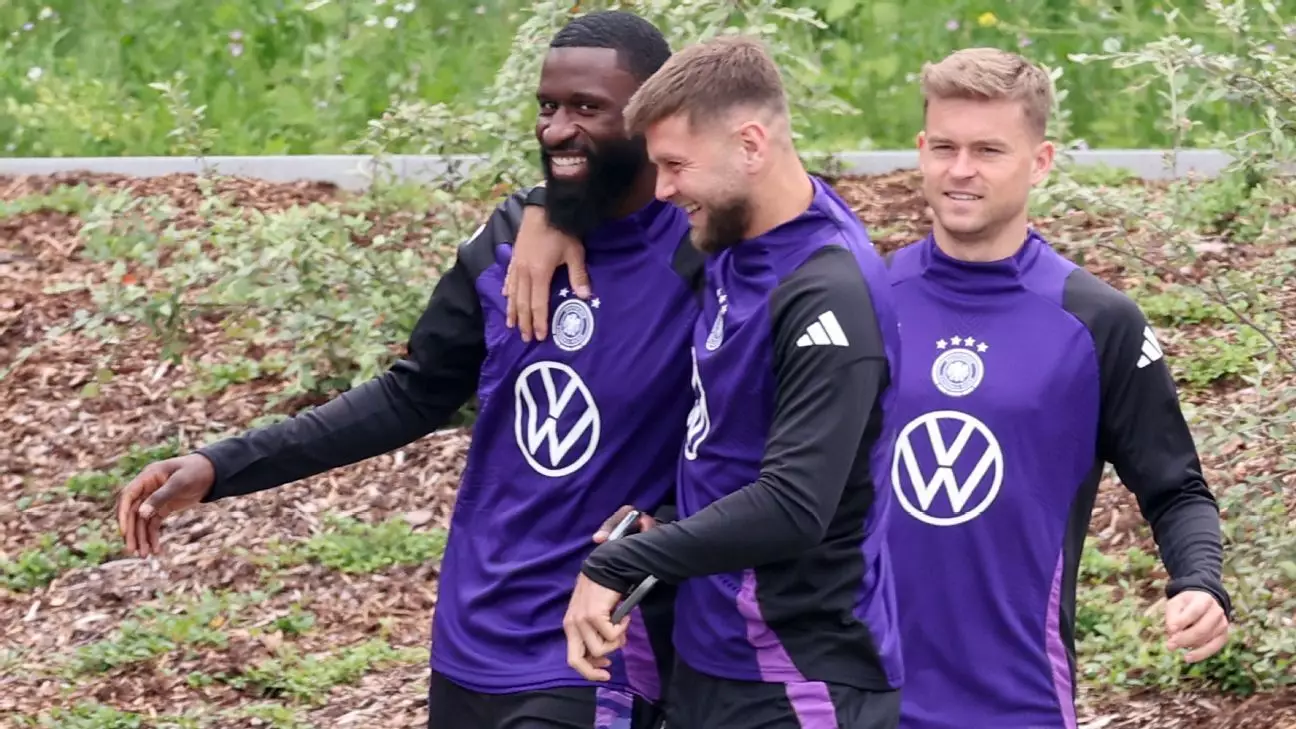As professional athletes, tensions can run high on the training ground and conflicts are bound to arise from time to time. In a recent incident between Antonio Rüdiger and Niclas Füllkrug during a Germany training session, the two players were reported to have engaged in a physical altercation during a drill. Despite the apparent confrontation, midfielder Toni Kroos has taken a positive view of the situation, referring to it as a “good thing” at a news conference leading up to Euro 2024. This attitude towards conflict within the team is a stark departure from the typical narrative that emphasizes harmony and unity in sports.
Kroos’ perspective on the training-ground fallout sheds light on the complex dynamics that exist within a professional football team. Instead of shying away from conflict and attempting to maintain a facade of seamless teamwork, the German midfielder acknowledges the inevitability of disagreements and tensions. He views such incidents as opportunities for players to address underlying issues, communicate openly, and ultimately grow stronger as a team. By embracing conflict rather than suppressing it, Kroos encourages a culture of transparency and resilience within the squad.
The upcoming European Championship poses additional challenges for the German national team, as they prepare to compete on home soil. Kroos recognizes the heightened expectations and pressures that come with playing in a final tournament in front of their own fans. The immediate feedback, both positive and negative, can have a significant impact on the team’s morale and performance. Despite the weight of responsibility, Kroos views the opportunity to represent his country in such a prestigious tournament as a privilege and source of joy.
As Germany gears up to kick off the tournament against Scotland, the team faces the task of navigating internal dynamics and external pressures in pursuit of success on the pitch. The training-ground incident involving Rüdiger and Füllkrug serves as a reminder of the challenges and complexities that professional footballers encounter throughout their careers. By acknowledging and addressing conflicts openly, players like Kroos set a precedent for constructive dialogue and growth within the team.
Conflict within a football team can be a catalyst for positive change and development, as demonstrated by Toni Kroos’ response to the recent training-ground incident. By reframing conflicts as opportunities for communication and growth, teams can foster a culture of resilience and cohesion that ultimately enhances their performance on the field.

Leave a Reply